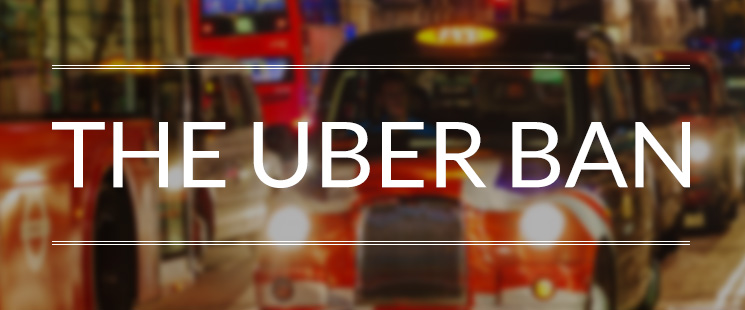
- Products
- Solutions
- Learn
- Partner
- Try Now

In a shock decision, Transport for London (TfL) has announced that it will not reissue Uber’s private hire license for the UK capital. The decision follows a series of issues highlighting Uber’s problems with responsibility, including issues of sexism in the workplace and a flagrant disregard for passenger security.
The TfL decision was taken largely due to a lack of corporate responsibility from Uber, as the authority highlighted decisions that could pose serious security threats to the people of London. TfL’s statement indicated that the city is concerned with the irresponsible way that Uber deals with serious criminal offences, obtains medical certificates, and does not conduct thorough background checks. Another reason for the ban is the app’s use of Greyball, a software that blocks regulatory authorities from monitoring the company or take action against them when they or their drivers break the law.
While Uber drivers commit serious offences such as assault and rape in many cities across the world, the company itself does not appear to have made the process of becoming an Uber driver any more stringent or safe. According to Uber, over three and a half million people in London use their service and they hire over 40,000 licensed drivers. They claimed the decision would hurt London’s image as a city open to innovation.
London’s Mayor, Sadiq Khan, lent his approval to the decision, saying “all companies in London must play by the rules and adhere to the high standards we expect – particularly when it comes to the safety of customers. Providing an innovative service must not be at the expense of customer safety and security.”
Many cities have attempted to ban Uber before, but due to the app’s clout, resources, and well-oiled PR machine, most of them have been unsuccessful. A couple of places which have succeeded in getting rid of Uber are Hungary and Denmark. Meanwhile, every couple of months, Uber turns up in the news either because their executives have made a remark disparaging women, or visited a brothel in Seoul, or are spying on their competitors and worse, their customers. London is the first city that has put the safety and privacy of their citizens ahead of the app’s desire to keep operating while not caring one bit for the rules of a civilized society or for the people who are the reason for their success.
The banning of Uber in a market as big as London does present an opportunity to other taxi businesses that are willing to learn from Uber’s mistakes. The Uber model of business is one that is extremely convenient for customers, but is dependent on a company with a strong code of ethics and corporate responsibility. This includes conducting rigorous background checks, ensuring full cooperation with law enforcement agencies, and ensuring your business is not a potential threat to your own customers. 90% of people probably have positive experiences from Uber, but what makes the difference is the remaining 10%. No amount of good Uber rides will undo the damage done by a criminal who should have never been allowed to drive a cab. Competitors across the start-up space in general and the transport space in particular would be wise to learn the lessons from Uber’s loss; a sound business model isn’t enough, a company needs sound ethical practices too, public trust is more than just something gained from a PR exercise, and finally that regulations, while annoying to many entrepreneurs, are there to ensure the people are always valued over profits.
Subscribe to stay ahead with the latest updates and entrepreneurial insights!

Subscribe to our newsletter
Get access to the latest industry & product insights.






















